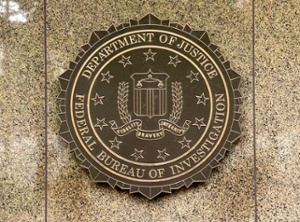3 min read
U.S. Justice Dept. Announces Anti-Collusion Procurement Task Force
![]() Whitcomb, Selinsky, PC Staff
:
November 25, 2019
Whitcomb, Selinsky, PC Staff
:
November 25, 2019

On November 5, 2019, the U.S. Department of Justice (DOJ) Antitrust Division announced a new Procurement Collusion Strike Force (PCSF), combining resources from several federal agencies to target anti-collusion and similar schemes among companies that contract with federal, state, and local government entities or receive government grants.
Training Provided
The PCSF will provide training to procurement officers to improve detection and prosecuting of antitrust crimes, such as bid-rigging conspiracies and related fraudulent schemes, which undermine competition in government procurement, grant and program funding.
Targeted Areas
The PCSF is beginning its initiative by focusing on the following 13 districts in the country: the Central and Eastern Districts of California; the District of Colorado; the District of Colombia; the Southern District of Florida; the Northern District of Georgia; the Northern District of Illinois; the Eastern District of Michigan; the Southern District of New York; the Southern District of Ohio; the Eastern District of Pennsylvania; the Northern District of Texas; and the Eastern District of Virginia.
InterAgency Partnership
Assistant Attorney General for Antitrust, Makan Delrahim, described the PCSF as an interagency partnership consisting of prosecutors from the Antitrust Division, prosecutors from 13 U.S. Attorneys’ Offices, and investigators from the FBI, the Department of Defense Office of Inspector General, the U.S. Postal Service Office of Inspector General, and other partner federal Offices of Inspector General.
In expressing the DOJ’s support for the initiative, Deputy Attorney General Jeffrey A. Rosen said, “To protect taxpayer dollars, the Justice Department is doing its part to eliminate anti-competitive collusion, waste and abuse from government procurement. To ensure taxpayers the full benefits of competitive bidding, experienced investigators and prosecutors with the necessary expertise will partner in this Strike Force to deter, detect and prosecute antitrust crimes and related schemes in government procurement.”
Needed Actions
The DOJ announcement explained the need for the PCSF by citing the scope and scale of government contracting and grant programs and associated Antitrust Division investigations and prosecutions. The DOJ’s Antitrust Division’s current caseload includes a significant number of cases involving government procurement. Delrahim indicated that “more than one third of the Antitrust Division’s 100-plus open investigations relate to public procurement or otherwise involve the government being victimized by criminal conduct.”
Delrahim emphasized that “[w]hen competitors in any given industry collude and conspire to rig bids, fix prices, or allocate markets — that is, commit criminal antitrust violations — they distort the free market and harm customers with high prices and lower quality goods and services. This is no less true in the area of public procurement, where the customer is the government and the American taxpayer foots the bill for artificially high prices.”
Two Core Objectives
The PCSF has two core objectives. The first is to deter and prevent antitrust and related crimes on the front end of the procurement process through outreach and training. The second objective is to effectively detect, investigate, and prosecute crimes that do occur through better coordination and partnership in the law enforcement and inspector general communities.
On the “buy side” of the procurement process, the PCSF will conduct outreach to federal, state, and local government procurement officials to educate them on how to identify potential indicators, or “red flags,” of collusion, and to assist with structuring their acquisition processes to remove vulnerabilities in the first place. On the “sell” side of the equation, the PCSF will conduct outreach to government contractors, their trade associations, and public contract lawyers in order to educate them about criminal antitrust violations and associated penalties.
Other Considerations
Contracting with private companies continues to fill an important need for government agencies, supporting efforts by government entities to achieve their mission through efficient delivery of goods or services. In return, contracting with the government can provide companies a sizeable customer and significant business. In the last decade, the U.S. government has spent, on average, about $500 billion per year on federal contracts.
Over the past few years, the DOJ’s Antitrust Division has increased its focus on antitrust compliance in the government procurement process. With the launch of the PCSF, government contractors should expect this heightened focus to further intensify and should remain vigilant in their compliance with U.S. antitrust laws.
If you are a government contractor and have questions about the fairness of a bid protest, the attorneys at Whitcomb, Selinsky Law PC, are experienced in all aspects of government contracting. Please call (303) 534-1958 or complete an online contact form.


